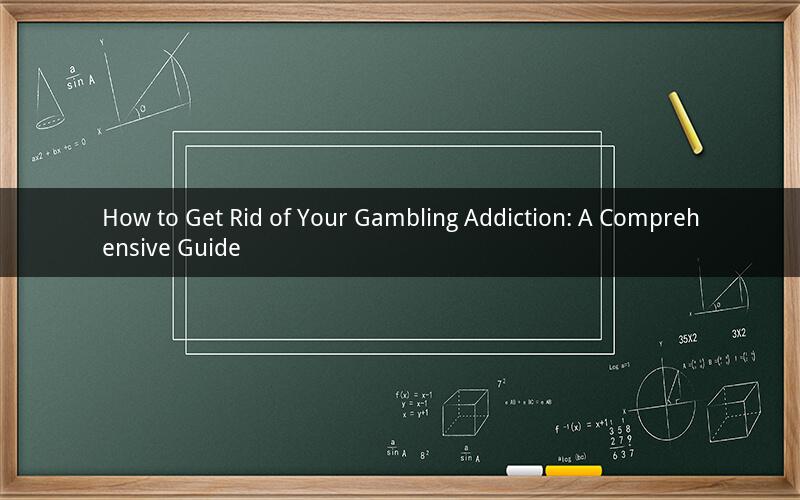
Introduction:
Gambling addiction, also known as problem gambling, is a serious issue that can have detrimental effects on an individual's life. Whether it's due to financial difficulties, relationship problems, or emotional distress, overcoming a gambling addiction is crucial for a healthier and more fulfilling life. This comprehensive guide will provide you with practical strategies and steps to help you overcome your gambling addiction.
1. Understanding the Problem:
Before you can start overcoming your gambling addiction, it's essential to understand the nature of the problem. Problem gambling is characterized by a pattern of gambling that leads to significant negative consequences. It is important to recognize the signs of problem gambling, such as the inability to control gambling behavior, chasing losses, and neglecting personal responsibilities.
2. Seeking Professional Help:
One of the most effective ways to overcome a gambling addiction is to seek professional help. A therapist or counselor specializing in addiction can provide you with personalized treatment options and support. They can help you identify the underlying causes of your addiction and develop strategies to cope with cravings and triggers.
3. Building a Support System:
Having a strong support system is crucial for overcoming a gambling addiction. Surround yourself with friends, family, or support groups who understand and support your journey towards recovery. They can offer encouragement, hold you accountable, and provide a sense of belonging.
4. Developing Healthy Coping Mechanisms:
Gambling addiction often stems from underlying issues such as stress, boredom, or emotional pain. Finding healthier coping mechanisms is essential to avoid relapse. Engage in activities that provide fulfillment and relaxation, such as exercise, hobbies, or mindfulness practices. These activities can help distract you from the urge to gamble and provide a positive alternative.
5. Establishing Financial Boundaries:
One of the most significant consequences of gambling addiction is financial turmoil. To overcome this, it's important to establish strict financial boundaries. Set a budget, avoid accessing credit cards or online gambling platforms, and seek financial counseling if necessary. By taking control of your finances, you can reduce the temptation to gamble.
6. Avoiding Triggers and High-Risk Situations:
Identify the triggers and high-risk situations that lead you to gamble and make a conscious effort to avoid them. This may include avoiding certain places, socializing with individuals who gamble, or attending events related to gambling. By minimizing exposure to these triggers, you can reduce the likelihood of relapse.
7. Celebrating Progress and Setting Goals:
Recovery is a journey, and it's important to acknowledge and celebrate your progress along the way. Set realistic goals for yourself and reward yourself when you achieve them. Whether it's a day, a week, or a month without gambling, recognize the significance of these milestones and use them as motivation to continue on your path to recovery.
8. Joining Support Groups:
Support groups, such as Gamblers Anonymous, can provide a sense of community and understanding. Connecting with others who have experienced similar struggles can offer guidance, empathy, and a sense of belonging. Support groups can provide a platform to share your experiences, learn from others, and gain insights into recovery.
9. Educating Yourself:
Knowledge is power. Educate yourself about gambling addiction, its causes, and the impact it has on individuals and families. Understanding the nature of the addiction can empower you to make informed decisions and take control of your recovery journey.
10. Maintaining Long-Term Recovery:
Overcoming a gambling addiction is a lifelong process. It's important to maintain long-term recovery by continuously working on yourself and staying committed to your goals. Attend therapy sessions, participate in support groups, and surround yourself with positive influences. Remember, relapse is a possibility, but with determination and support, you can overcome it.
Questions and Answers:
1. What are the signs of a gambling addiction?
- Signs of a gambling addiction may include the inability to control gambling behavior, chasing losses, neglecting personal responsibilities, feeling restless or irritable when not gambling, and lying to hide gambling activities.
2. Can gambling addiction be cured?
- While there is no one-size-fits-all solution to cure gambling addiction, it can be overcome with proper treatment, support, and a commitment to recovery.
3. How can I seek professional help for my gambling addiction?
- You can seek professional help by contacting a therapist or counselor specializing in addiction. They can provide personalized treatment options and support tailored to your specific needs.
4. Are support groups effective in overcoming gambling addiction?
- Support groups can be highly effective in overcoming gambling addiction. They provide a sense of community, empathy, and guidance from individuals who have experienced similar struggles.
5. How can I maintain long-term recovery from a gambling addiction?
- To maintain long-term recovery, it's important to continue attending therapy sessions, participating in support groups, surrounding yourself with positive influences, and continuously working on yourself. Staying committed to your goals and seeking help when needed is crucial for long-term success.